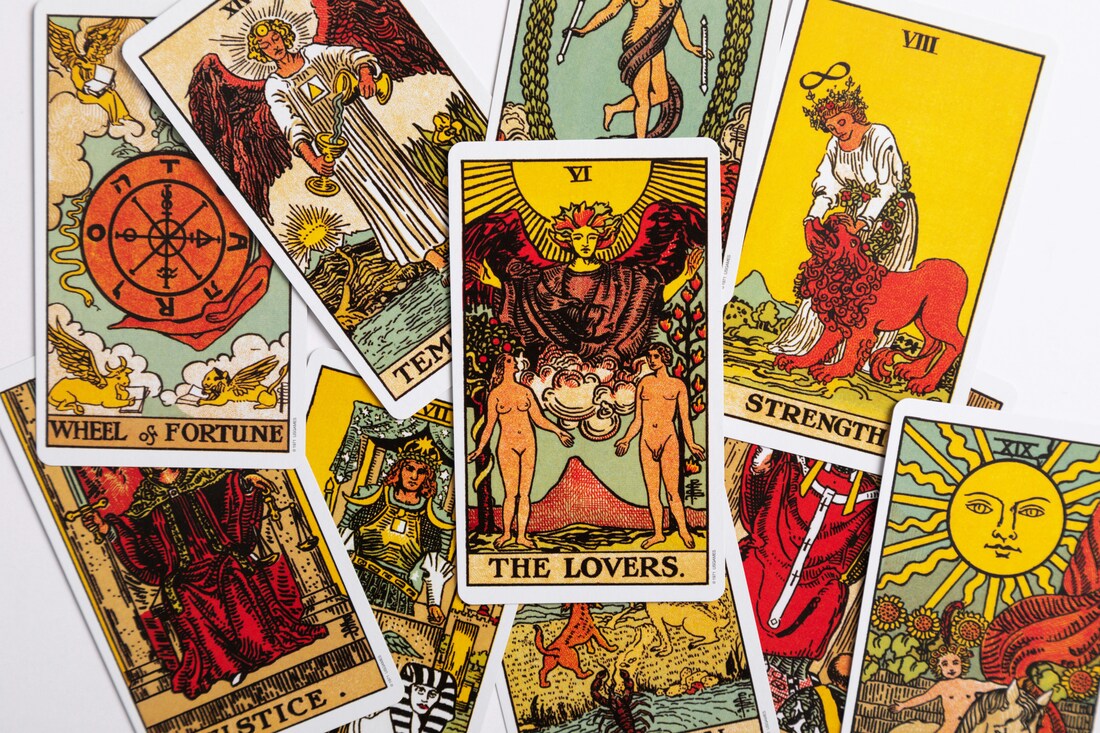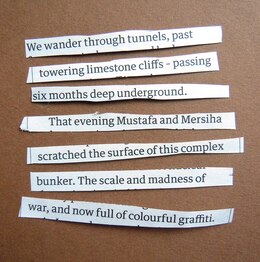|
Decisions are Not Calculations
Jacques Derrida (1930-2004) was an immensely influential philosopher, known for asserting that decision making is a “leap of faith.” Derrida contends that if everything were already known to inform a decision, then it would not be a decision at all, it would just be applying calculation and reason to arrive at the answer. In other words, a person who knows everything is not making a "decision." Derrida contended that a true decision goes beyond the sum total of the facts. He wrote that "not only must the person taking the decision not know everything…the decision, if there is to be one, must advance towards a future which is not known, which cannot be anticipated." So, decisions require that the person deciding be moved into the ‘unknowability of the future.' Decisions change the future in Unforeseen Ways When we act on a decision, others react to it, and when others act based on our reactions, it causes further actions by others. We cannot foresee all the actions and changes that ripple through the fabric of the future, and cannot predict all outcomes accurately. Acting without full knowledge is inevitable. Thus, we are fooling ourselves if we believe there are clear decision options and justifications. We must act and then we will see what comes next and make our next decision. Decision-Making is Difficult Even renowned figures like Hamlet grapple with the complexities of decision-making. Hamlet seemed pretty stuck – you may recall his soliloquy on “To Be or Not To Be.” There he was frozen with indecisiveness, weighing, and thinking it out excessively. In essence, Derrida’s philosophy urges us to embrace the unknown by taking that leap of faith. To start a new life narrative, through pulls of wonder and curiosity, make a decision. Turn the ship in a new direction, even as painful as it can be to lose the other possibilities when you turn. Afterall, as he puts it “The instant of decision is madness.” Sources: Internet Encyclopedia of Philosophy at https://iep.utm.edu/jacques-derrida/ https://leepublish.typepad.com/strategicthinking/2019/09/the-instant-of-decision-is-madness.html
0 Comments
The Tarot is a deck of playing cards that can serve as a dynamic tool for psychological growth and self-discovery. Through the vivid imagery of the cards, we are prompted to confront our deeply rooted beliefs, hardened perspectives, and one-sided views, fostering a fuller understanding of ourselves. When those rigid positions we’ve taken are seen more fully, we unlock additional choices in shaping our lives.
The best way to get at the individual meaning of these cards for oneself is to approach them directly, as one would the paintings in an art gallery. Like paintings, Trumps are so-called projection holders, meaning simply that they are hooks to catch the imagination. Projection is a process whereby we first see in the persons, objects, and happenings in our environment those tendencies, characteristics, potentials, and shortcomings that really belong to us. We “people” the exterior world with the witches and princesses, devils and heroes of the drama buried in our own depths. By viewing the images that we cast onto outer reality as mirror reflections of inner reality, we come to know ourselves. (From Sallie Nichols in her book Jung and Tarot) By way of illustration, say our friend Emily has a question about what action she should take around a big challenge in her life. She draws a card - The Hanged Man, which shows a man suspended upside down by one foot! She is not happy with this card. It appears to her to be someone really stuck, “tied up” by some cruel outer fate. This is not helpful - she wants to know what to DO about her problem! However, further examination of the card shows that the Hanged Man isn’t actually tied up – he could easily slip out of the noose. This shifts something in Emily and a new thought occurs to her, as if a veil has lifted to show a truth she had been reluctant to acknowledge. The Hanged Man is perhaps urging her to willingly surrender to the ebb and flow of life's currents. Emily then realized she had been clinging desperately to the idea of taking action. Now in her calmer state, she could see the possibility of suspending her need only for action, and embrace an uncertainty that might allow something new to come from a different, upside-down, perspective. Other ways in which the Tarot can help us psychologically to follow in future writings! When a word jumps out at you, gets your attention, repeats, or otherwise shows up in your life, further consideration may be worthwhile. Hidden roots in the origin of the word can bring something unexpected to your attention, to a new place in current thinking and understanding. This is especially helpful if you’re stuck with a perspective that’s too narrow and not serving a situation.
I’ve shortened the quote below of a process for looking into the root of a word, suggested by Russell Lockhart. He illustrates the process through his investigation of the word “consider:” The first step is to find the word in the dictionary. Here is what you will find for “consider:” con?sid?er (k?n-sid’?r) v. -ered, -er?ing, -ers—tr. 1. To think carefully about. 2. To think or deem to be, regard as. See Usage Note at as1. 3. To form an opinion about; judge: considers waste to be criminal. 4. To take into account; bear in mind. 5. To show consideration for; considered the feelings of others. 6. To esteem; regard. 7. To look at thoughtfully. — intr. To think carefully; reflect. [ME consideren < OFr. < Lat. considerare : com-, com + s?dus, s?der-, star.] Every word in every language was born at some point in time and somewhere in the world. And every word that has been born has a history, a story to tell. This birth and story of a word is referred to generally as a word’s etymology. You will recognize the “-logy” of this word, which means “speech.” The component “etym-, refers to “truth.” So, etymology literally means “truth speaking.” Notice that the dictionary “brackets” the etymology. It’s the last entry. Current meaning and definition are too often only the shell of a word. Words take on life, induce images, excite the imagination, begin to weave textures with one another, and tell whole stories, if we but scratch the surface of the word. The “sider” part of this word is the root-word for star—the same etymon we see in such words as sidereal, meaning “in reference to star time,” and siderite, the iron from meteorites—that is, “what falls to earth from the stars.” In earlier times, a sidus was one who observed the stars. That required care and time—one could not hurry the heavens. And in watching the stars in this slow and attentive way, the psyche was stirred, began to move, and projected itself into the starry lights. In such careful looking, the psyche began to see itself, and man perceived the relationship between himself and the stars. In such con-sideration, being with the stars, the psyche gave birth to astrology. In these days of instant everything, this sense of “consider” has been lost. So, paying attention to the word’s birth and its developmental history is one effective way of slowing down. And by slowing down, we become psychically prepared to experience the “shock” of what is revealed-- that what is hidden in the birth and history of “consider” is the image of “star.” https://www.ralockhart.com/WP/ The cut-up method is best-known as a literary technique in which a written text is cut up and rearranged to create a new text. The cut-up has received some mainstream recognition as a way of brainstorming in the “creative industries.”
In the 1950s, Artist Brion Gysin had stacked newspapers on top of each other to protect a tabletop and noticed, upon cutting them with a razor, that the clippings interacted with each other in his head to produce interesting results. He accidentally rediscovered the cut-up method, a technique that can be traced back to at least the 1920s, even to this 1883 poem from Lewis Carroll (who wrote Alice in Wonderland): For first you write a sentence, And then you chop it small; Then mix the bits, and sort them out Just as they chance to fall: The order of the phrases makes No difference at all. Gysin then introduced his friend, the author William Burroughs to the technique at the Beat Hotel. Burroughs went on to create a number of experimental novels that drew on text revealed by the cut-up method. Try it for yourself!
Text mixing desk A Cut-Up Generator Sources: https://www.writing.upenn.edu/~afilreis/88v/burroughs-cutup.html https://www.languageisavirus.com/creative-writing-techniques/william-s-burroughs-cut-ups.php https://www.briongysin.com/cut-ups/ https://austinkleon.com/2018/09/18/the-surprisingly-long-history-of-the-cut-up-technique/ Quoted from Saved by a Poem, by Kim Rosen, about poet C.C. Carter (pages 27-29)
C.C. was not always so at home in herself and her body. At the age of 11, she wanted to die. Her father was a minister and had to change parishes frequently, so her family was constantly moving. On top of that, her body started to change. “I was from a family of very full-figured women.” “I literally wanted to check out of here. My grandmother sensed this and gave me Dr. Angelo’s poem ‘Phenomenal Woman.’ She told me to put it on my mirror. Every morning before I walked out of my room I was to read it.” That poem saved C.C.’s life. Its medicine brought her back to herself from the barrage of insults, invasion, and loneliness she faced at school. “I learned how to use poetry to silence my enemies—spouting off to the bullies in the hallway, ‘You may write me down in history / With your bitter, twisted lies. / You may trod me in the very dirt. / But still, like dust, I’ll rise.’ Or to the mean, snotty girls, ‘Pretty women wonder where my secret lies. / I’m not cute or built to suit a fashion model’s size.’ Every time I hit an obstacle, there was Dr. Maya Angelou, and a poem, and my grandmother.” Listen: Dr. Maya Angelou Recites Her Poem "Phenomenal Woman" Psychiatrist John Beebe has watched film all his life and lectured and written about movies as a way to examine the drama of therapy. His comments below are taken from a 2011 interview with The Huffington Post, in answer to the question he was posed “can watching a movie be like therapy?”
Beebe: Yes, a good film can help us metabolize our life experiences. I think the problem for all of us is finding a coherent narrative out of our existence. Like therapy, a movie does that for us, distilling years of experience into a story. When the story works, it has an animating effect on us. We walk out of the theater feeling better; we don’t know why we feel better, especially when there has been a lot of pain in a movie, but we do. If we don’t, something is wrong with the film! Movies, which are the reflections of a filmmaker responding to the human condition, are also models that show us how to develop the capacity for reflection. They enable the audience to hold complex states of mind in a creative way — a state that’s not unlike our dreams. We do the same thing when we go into therapy. We’re not master filmmakers, but if we watch our dreams over a period of time, they show a process of reflection on our experience. Working with them in therapy can strengthen our consciousness; as consciousness grows, so does our ability to fully engage with this life that is so perplexing and upsetting, but also marvelous. https://jungcurrents.com/academy-awards-jungian-analyst-john-beebe-in-the-huffington-post |
Archives
March 2024
Categories |
Proudly powered by Weebly



 RSS Feed
RSS Feed